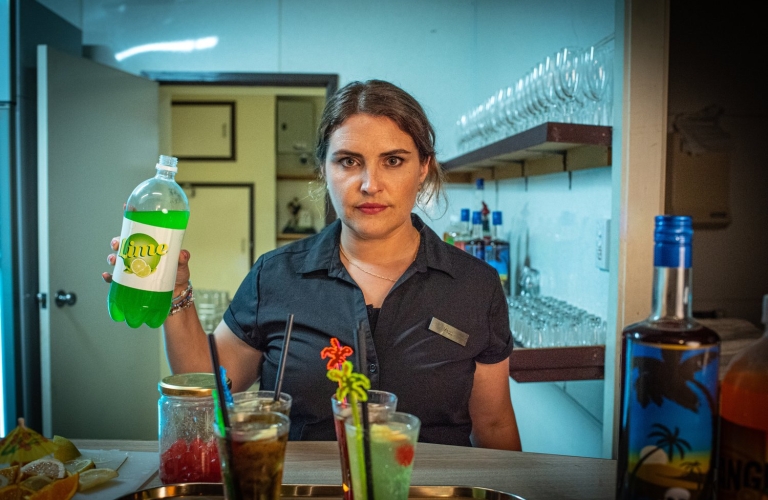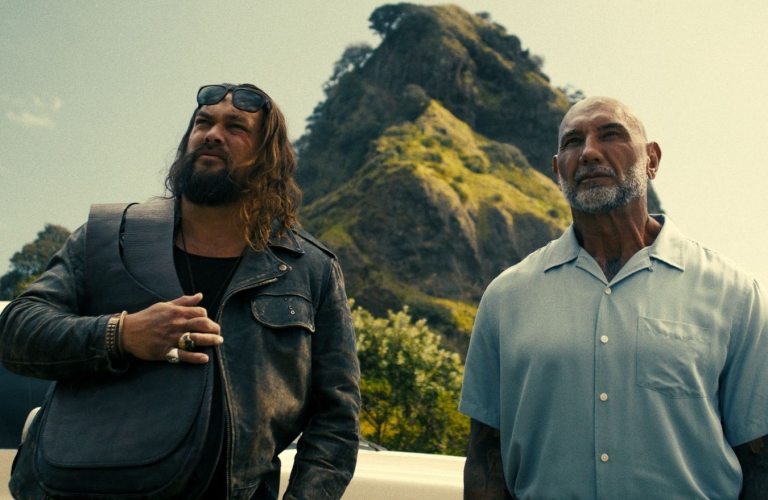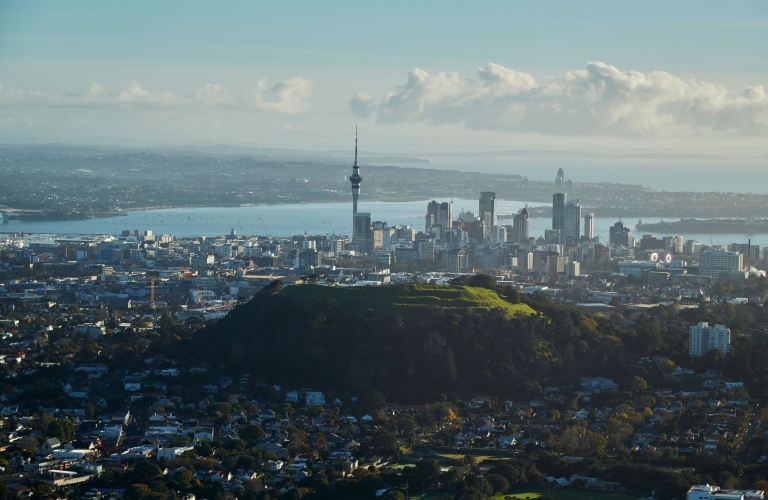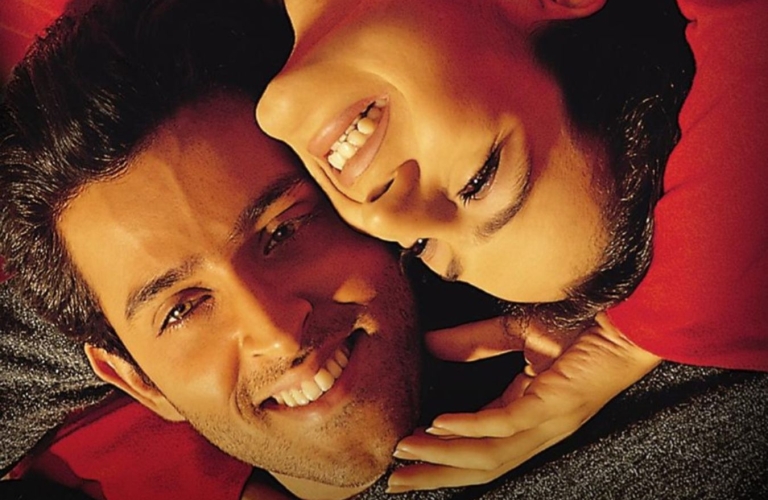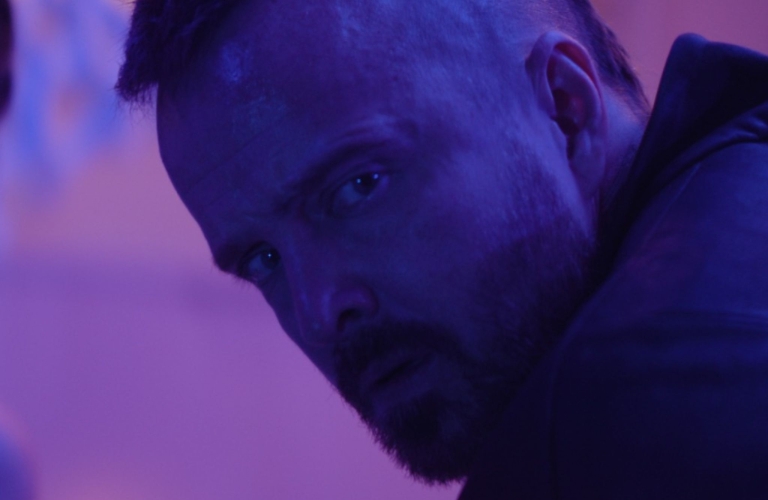With the film still at the editing stage, Screen Auckland spoke with Brugh and co-producer Florence Hartigan about crowdfunding, vampires, and standing in the rain.
“I’m surrounded by tubes and posters,” says Jonny Brugh forlornly. “I drove the length and breadth of the country getting these posters signed and they’re being sent to America and Russia and the UK. Oh my goodness.”
Brugh has amassed - and is currently distributing - merchandise from Taika Waititi and Jemaine Clement’s What We Do in the Shadows to support his latest project, the short film Proof, which Brugh wrote and directed. For while he is a staple of New Zealand stage and screen, to international fans Brugh remains Deacon, Shadows’ knitting, cool-kid vampire.
Brugh quietly - and sometimes flamboyantly - stole that movie. Deacon, in return, has been good to Brugh. Spurred on by Shadows, the actor has a passionate following, enabling him to hit the US convention circuit. It was at one such event that he met Koura Linda, president of Florida-based production company Space Dream Films.
“I told her I had an idea, so I wrote it up and sent it to her. She said, ‘I judge short films and I haven’t read anything like this.’ She told me she raised funds for her work on the American indie film site Seed & Spark, and said, ‘Why don’t we do a crowdfund?’”
Leveraging Deacon’s popularity to exchange Shadows-related merchandise, masterclasses and production credits for financial assistance, the campaign raised more than US$24,000.
Taking charge
Proof, which was shot in the middle of 2021, stars Dave Fane and Morgana O’Reilly, and is described as ‘an optimistic psychological thriller’ about a man who may or may not have dementia, and a woman who may or may not be an angel.
It’s Brugh’s first time behind the camera.
“Directing is a chance to do something other than acting,” he says. “I don’t get starring roles, I get the dingbat roles. So I thought, I’m just going to start writing films and making films.”
Tooting their own horn
As well as Space Dream, the film is presented by Brugh’s own company, Heimlich Manoeuvre, which involved co-producers Lissy Turner and Florence Hartigan working on the ground in New Zealand. With such a tight budget where every cent counts, Hartigan asked for and received help from all quarters, including Screen Auckland.
“Kiwis don’t tend to toot their own horns, so it can be hard to ask for support but when you do it, I’ve seen it work wonders,” says Hartigan.
[Screen Auckland was] patient with all my questions and incredibly supportive. We were grateful for any assistance we could get, and the chance to capture some cool Auckland locations.
NZ vs the US
Koura Linda urged Brugh to film in America, where his budget would stretch further. The director, though, was adamant that he would make his debut film here, and Proof was shot in Avondale, Grey Lynn, Ponsonby and Western Springs.
“I wanted to shoot in New Zealand because I’m in love with the backdrop,” Brugh says. “There are poems all over it.”
Less poetically, there were logistical reasons to keep things local, even if it meant spending more money.
“I wanted to put a New Zealand team together. I wanted all the special effects to be done here so I could be there when it happened, instead of sending files off to America.”
And besides, shooting in the States isn’t necessarily all that. Florence Hartigan spent 10 years working there, and compares her experiences of filmmaking in Los Angeles to filmmaking in Auckland:
“In LA, if you see a film crew it’s like, ‘Ugh, are they going to ruin my day today?’ In New Zealand, people don’t have that attitude. In Auckland, people who are not in the film industry get excited when you can incorporate them into your project, and the film people are also so sweet. We were flabbergasted by how willing people were to get around the project and help out.”
The joy of collaboration
Hartigan rolls off a list of companies that made Proof come to life, including caterer Food Truck Garage and unit supply specialist Craft Services.
“Craft Services lent us a bunch of stuff, including sandbags, without which we would have been toast, since our second day of shooting was in a rainstorm.”
It was on that second day Brugh truly understood what his team had bitten into. On an abysmal night fit only for vampires and filmmakers, he took a moment to reflect on the shoot.
“People came in on a cute little project for not much money,” he says, “and I watched them standing around in the pissing rain at one in the morning. I can’t explain what that feels like.”
